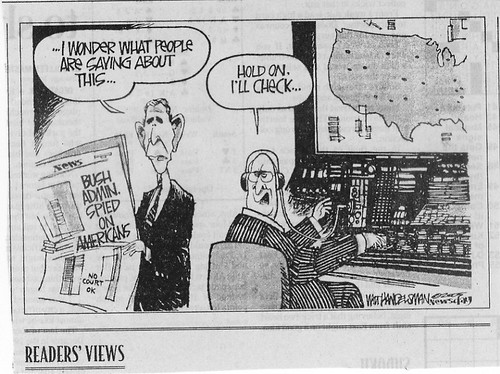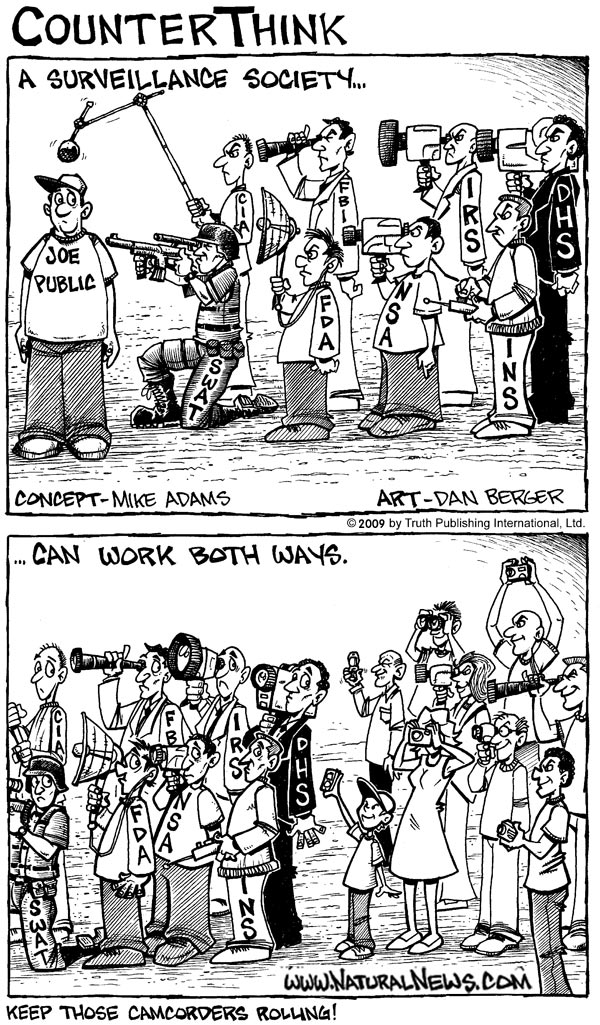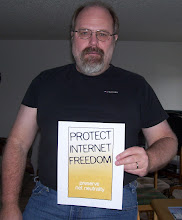
Sunday, July 27, 2008
Sunday, July 20, 2008
'Just Doing Our Job. Sorry About Your Wall And Your Marijuana.'
 Martin Martinez at Lifevine's office after the Seattle Police Department searched the premises, knocked a wall down, and unlawfully took 12 ounces of legal medical marijuana. Photo by Courtney Blethen of the Seattle Times
Martin Martinez at Lifevine's office after the Seattle Police Department searched the premises, knocked a wall down, and unlawfully took 12 ounces of legal medical marijuana. Photo by Courtney Blethen of the Seattle TimesSurprisingly, I actually heard back from the King County Prosecutor's Office after I sent an email July 15 protesting their search earlier that day of Martin Martinez's Lifevine/Cascadia NORML offices and the harassment of medical marijuana patients.
While the reply email is inevitably quite political in its use of doublespeak ("We have concluded the Seattle Police Department acted appropriately"), it's encouraging to see that it also acknowledges that Martin and his group were well within Washington's medical marijuana law.
It is, of course, highly questionable for the prosecutor's office to conclude that the SPD "acted appropriately" when they were fully informed -- before conducting the raid, and during the course of the raid -- by both Martinez and his lawyers, that Martin was a legal medical marijuana patient. How does the mere smell of (legal) pot make it "appropriate" to raid a medical marijuana patient's office, knock his wall down in search of nonexistent plants, and steal his medicine? That doesn't sound very "appropriate" to me.
That's the good news, or at least as good as it gets in the email from the prosecutor's office, reproduced below.
The bad news is:
"One part of state law prohibits the possession of marijuana while another part authorizes possession and use for medical purposes. Law enforcement officers and prosecuting attorneys are entrusted to interpret and enforce both laws on a case-by-case basis."
Which is wrong. The police acted unlawfully, not "appropriately." According to the law, Senate Bill ESSB 6032, which passed in April 2007 and went into effect July 22, 2007:
A local or state law enforcement officer stopping a person lawfully possessing medical marijuana:
• Can document the amount
• Can take a sample for testing
• Cannot seize the marijuana
• Cannot be held civilly liable for not seizing the marijuana.
"They are supposed to take photos and samples and carry on the investigation without seizing the medicine," Martinez told me today. "But the fact is, the officers on the scene did not make the call. That call actually came from an assistant DA because it was after 5 PM and the boss, Dan Satterberg, was unavailable."
This is completely disingenuous on their part, and of course it leaves the door open to further harassment and intimidation of legal medical marijuana patients whenever they want, as they see fit. To call the actions of the police "appropriate" is especially dishonest, as well as legally incorrect. They had no authority, no legal right, to confiscate Martin's medicine.
It is up to us in the medical marijuana community to call them on this nonsense, each and every time they pull it, exactly as we called them on it when they did it this time, to Martinez and his Lifevine group.
Martinez said one officer for some reason became convinced that he was growing a garden in a secret room, so the cop ripped down part of a wall. No plants were found. Martinez wasn't arrested. No charges have been filed. "I'm just hopping mad," attorney Douglas Hiatt told the Seattle Times. Hiatt arrived at the office during the search and called a deputy prosecutor to try to talk her out of executing the warrant. "It's stupid and was totally preventable," he said.
While the police returned Lifevine's patient records, they still haven't given Martin back his 12 ounces of medicine -- which the law specifically prohibits them from taking in the first place. I'm still wondering exactly what part of this that the Prosecutor's office and the Seattle Police Department don't understand.

The police need to give Martin Martinez his medicine back. This man, David Lucas of Huntington Beach, California, in April got his 31.8 grams medical pot back after the California Supreme Court Court declined to review an appellate court ruling, which ordered Garden Grove police to return seized medical marijuana to another patient. This means that the lower court ruling stands and is valid. Lucas posed for photographer Eugene Garcia of the Orange County Register with his pipe and marijuana.
Anyway, here's the email I received today from the prosecutor's office. Mr. Satterberg evidently delegated the task of dealing with me to Deputy Chief of Staff Ian Goodhew.
------ Forwarded Message
From: "Goodhew, Ian" Ian.Goodhew@kingcounty.gov
Date: Sun, 20 Jul 2008 15:38:01 -0700
To: alapoet@comcast.net
Subject: FW: Why Are You Wasting Our Money?
Dear Mr. Elliot [sic],
Thank you for contacting the King County Prosecutor's Office regarding the recent service of a search warrant on a medical marijuana storefront in the University District of Seattle. We appreciate hearing from you on this important matter.
We have reviewed the results of the Seattle Police investigation of the storefront. We have concluded that the Seattle Police Department acted appropriately in response to citizen complaints about the strong odor of marijuana coming from a commercial space next door. They have conducted a thorough investigation for our review.
We have decided that no criminal charges should be brought against the person renting that commercial space. The Seattle Police Department is returning documents and a computer that were taken in the service of the search warrant. Police gathered these items because they reasonably believed that they showed an effort to distribute marijuana in violation of state law.
We are satisfied that the individual in question is authorized to possess marijuana for medical purposes under Washington State law, and that the amount in his possession was arguably within the "60 day supply" permitted by statute.
Although the exact definition of a 60-day personal use amount is not defined by statute, the Washington State Department of Health is currently working on a specific definition. The amount currently being considered is 24 ounces of cultivated marijuana, six mature plants and 18 immature plants.
The individual responsible for the storefront and his supporters assert that this operation was a collection of patients working together to help other patients access marijuana. Legal access to marijuana is one area where the state law fails to provide helpful guidelines. There is no mechanism for authorized patients to get marijuana without some illegal transaction occurring up the chain of delivery beyond the patient and their provider. Selling or otherwise dispensing marijuana is not allowed under the law.
One part of state law prohibits the possession of marijuana while another part authorizes possession and use for medical purposes. Law enforcement officers and prosecuting attorneys are entrusted to interpret and enforce both laws on a case-by-case basis. We will continue to do so, with the hope that some clarity can be brought to the law in the future.
Thank you again for contacting the King County Prosecutor's Office regarding this important issue.
Sincerely,
Ian Goodhew
King County Prosecutor's Office

Seattle Police Chief Gil Kerlikowske
Email: gil.kerlikowske@Seattle.gov
Telephone: (206) 684-5577
Fax: (206) 684-5525
-----Original Message-----
From: Steve Elliott alapoet@comcast.net
Sent: Tuesday, July 15, 2008 9:51 PM
To: Satterberg, Dan dan.satterberg@metrokc.gov
Subject: Why Are You Wasting Our Money?
Mr. Satterberg,
I'm sitting here asking myself why you see fit to waste taxpayers' money on raiding, harassing and intimidating medical marijuana patients and providers.
Exactly how does the public benefit by your going after sick and dying people and those who care for them?
This is a horrible waste of time and resources, and is incredibly barbaric as well.
Please stop.
Steve Elliott
--
IT'S TIME TO TAKE ACTION
Email and call:
• Dan Satterberg (206-296-9067)
• Ian Goodhew (206-296-9064)
The following two names are most important to contact!:
• Police Attorney Leo Poort (206-233-5141)
• Seattle Police Chief Gil Kerlikowske (206-684-5577)
(Fax 206-684-5525)
• Call the King County Omsbudsman's office to file a complaint
(206-296-3452)
Let them know that they should return Martin Martinez's medicine NOW, and that the police legally weren't supposed to take it in the first place.
--
"You are precisely as big as what you love and precisely as small as what you allow to annoy you."
~ Robert Anton Wilson
Friday, July 18, 2008
Digg's Got A Problem, And How To Fix It
 I've been hearing an awful lot of complaining about a "Digg oligarchy" and how Digg's "power users" tend to monopolize the front page.
I've been hearing an awful lot of complaining about a "Digg oligarchy" and how Digg's "power users" tend to monopolize the front page.In my studied opinion, that's not Digg's real problem (if you're already a power user, you may want to go ahead and skip to "Content Should Rule," below); the domination of the front page by a few users is due not so much to any oligarchy or monopoly, but more to the fact that certain Diggers -- go ahead and call 'em "power users" if that works for you -- have figured out how to effectively use the tools available to anyone on the Digg social bookmarking site to give submitted content the best possible shot at the front page.
Actually, it’s not that difficult to figure out, once you’ve been on the site a couple months and see how it works.
• Develop a network of friends
• Figure out effective headline writing and article summarizing; and
• Suss out the types of content that Digg users tend to go for (this doesn't have to mean pandering; just angling effectively!)
Hitting strongly on all three of those can get anyone (at least anyone with some smarts and some time to spare) a front page story.
If you have a great network, but can't or won't write a hooky head or snappy summary to save your life, then you're just going to a have a long list of people you annoy with your shouts.
If you write great heads and summaries but don't have an effective network, you may eventually luck up and climb the charts without the benefit of friends, but that's a once-in-a-blue-moon type of thing. (It happened to me once in my first 45 days on Digg, before I had a good network, out of a couple dozen submissions, but I got lucky.) The trick is in first getting it on the specialized charts, i.e., the Top 10 "Upcoming" lists for each subcategory (and that's really hard to do without a network of friends to help you), so that people you don't know will see it there, check it out, and hopefully give it a digg.
It doesn't really matter if you're submitting content from a smokin' blog you wrote or a major media outlet: A lame head, or one that confuses people, can sink the article, no matter how good it may be. The same goes for the article description, because let's be real. The sad fact is, that's all that probably half the people who digg the story ever read.
It should be noted that the #1 reason for not having an effective network is being too lazy or selfish to digg your friends' submissions. So they rightly get pissed off at you. At a minimum, they aren't in any hurry to digg your stuff, and in fact they're likely to delete you from their friends list.
But there's no reason that anyone who is reasonably committed and literate can't do the networking, the headline-writing, and the article summary. Even if you don't create any content yourself, it's just a matter of finding good content and sometimes (OK, pretty often; newspaper heads are often surprisingly lame) repairing the headline or sprucing up the description.
Hint: you may do better to cruise local newspapers for content than nationally read ones, because there really are Diggers just waiting for the New York Times and L.A. Times to publish new articles online so that they can submit them. And nine times out of 10, if it's a killer article, one of these bastards has already submitted the article before you have.
If you see a great story that's been picked up by the AP, you'll often be well served to trace it back down to the local paper where it originally appeared. It'll often be longer, contain more quirky details, and it'll certainly have a LOT less chance of having already been submitted.
By the way, just so you don't think I'm one of those guys who writes about "How To Make Digg's Front Page," then when you check their profile you learn they've never actually done it (I always find that amusing): I joined in April, and have been on the front page more than 30 times. My popular ratio is currently around 30 percent.
Content Should Rule
It seems obvious enough, doesn't it? Even with a killer network, a clever headline, and snappy come-on of an article summary, if your content is weak, you're just putting lipstick on a pig. And the best network, head, and description in the world aren't enough to conceal the fact that your content sucks.
Now, granted: Regardless of content quality, almost every time anything "goes popular" on Digg, you are going to get the Inevitable Whiny Comment:
"I can't believe this went front page!"
But beyond the obvious and thinly veiled envy, your detractor may have a point if your article doesn't live up to the head and the summary. You have the equivalent of a disgruntled customer if you promised more than you can deliver.
Content is king. Or, it should be. So why the hell does so much of the front page stuff on Digg seem to be the distilled essence of asininity?
Because the dominance of that type of Digg-pandering writing is inevitable if the system is geared to favor it. It's no secret that many blogs and sites now tailor content specifically to appeal to the Digg audience -- and there's nothing wrong with that.
But there IS something wrong with wanting so badly to make the front page that you are willing to suck the life out of your content. And that's what happens, far too often.
Afraid of pissing off conservatives? Libertarians? Republicans? Anarchists? Global warming deniers? Earth First!ers? Christians? Californians? Gun owners? Running afoul of any of these groups can keep you off the front page, because...
Digg's Got A Problem
Digg’s big problem, as I see it, is the de facto censorship of the “Bury” system.
More or less organized “Bury Brigades” can make a story just disappear if it pushes their hot buttons, and a LOT of good content is lost that way.
The best stuff I’ve ever submitted, with a couple of notable exceptions, got buried.
The effect of the "Bury" function is to dumb down content. Fear of getting a submission buried leads many Digg users to bland out on their submissions and descriptions, and that serves nobody. If you have to be afraid of pissing anybody off, then you aren't firing on all cylinders -- that's the bottom line.
Kingsley Amis was right: “If you can't annoy somebody, there's little point in writing.”
The insidiousness of the "Bury" system -- and what makes Digg contributors so fearful of it -- is that when a story is Buried, the vast majority of Digg users don't even get to decide for themselves whether the submission has any merit. That decision has been made for them.
With the way the secret Digg algorithm weights Buries, it only takes a relative few of them, from a tiny minority of users, to make a story disappear, even if it has 200 diggs. That's not democracy.

http://blaugh.com/
"Controversial" Doesn't Have To Mean "Bad"
I think Digg could maybe take a cue from Reddit (I know, that's heresy) and implement a “Controversial” section where buried material goes, instead of just disappearing completely from all lists and searches (except when you check the “include buried stories” box when doing a search, which VERY few users do).
Since one of the best features of Digg is the fact that it aspires to be a democracy, then a simple change like this one doesn't have to be that big a deal. If enough Diggers ask for it, if enough submitters get tired of quality content getting buried, then we can help make a change happen.
Not only would this keep Bury Brigades with an agenda from sending quality (but controversial) content straight to oblivion; the "Controversial" section -- since it would inevitably contain some of the very best content on the site -- would prove enormously popular among certain populations of Digg users who are looking for precisely that sort of thing.
Some of us ENJOY having our thoughts provoked, you know!
.......
Postscript: This post lasted about 9 hours on Digg before it got buried.
Labels:
digg,
media,
news,
social media,
social networking
Thursday, July 10, 2008
Privacy's Twilight: The Rise Of The Total Surveillance Society
 We may be the last generation that will have ever known privacy.
We may be the last generation that will have ever known privacy.Every day, we are one step closer to the Total Surveillance Society. Every day, we lose a little more of that part of being human that claims the right to be left alone, that knows freedom from the prying eyes of the corporate state, that has the boldness to claim some inner sanctum where the all-seeing eyes of technology cannot penetrate.
The dystopian dreams of mid-20th Century writers like George Orwell, Aldous Huxley, Philip K. Dick and Barry Malzberg are coming true all around us, but it seems the majority of citizens are so dazed by mass media distractions, by government-instilled fear, and by the drudgery of their daily existence that they can't be bothered to wake up and take stock of what is being taken from them.
Our telephones don't just transmit our voices from point A to point B anymore. The government is there in the middle between us and those with whom we speak, listening, analyzing, weighing the possibility that we are Enemy Combatants who should be whisked away in the dead of night and stored in a cage from which we'll be periodically extracted for "harsh interrogation."
The telecom companies which have been entrusted with the sanctity of our private conversations have not only rolled over -- all of them but Qwest and CREDO Mobile, anyway. They have acquiesced to the demands of government that they allow federal goons to hover over our every word. They have been paid handsomely for their complicity, but at the cost of their humanity and our freedom. And now they have been told by a spineless and morally bankrupt Congress that they won't ever be held accountable; that it's OK to break the law when the President tells you to do it. If you are rich and powerful enough to buy Congressmen, then the law apparently wasn't meant to apply to you, anyway.
The telecom companies (again, with the notable exceptions of Qwest and CREDO) have no problem at all handing the info over to the government -- and that's without a court order. And as we sadly found out July 9, a spineless Senate (with the exception of 28 true patriots) is more than willing to give them carte blanche to do so, by including telecom immunity in the FISA bill.
"Congress has been far too compliant as President Bush undermined the Bill of Rights and the balance of powers," The New York Times editorialized on July 8. According to the Times, the FISA bill just approved by both the House and Senate needlessly expands the government's ability to spy on Americans and ensures that the country will never know the full extent of President Bush's unlawful, warrantless wiretapping.
Even though the old FISA law, enacted in 1978 as a response to the abuses perpetrated by the Nixon administration, created a court which, over a 30-year period, approved nearly 20,000 wiretapping warrants while rejecting perhaps a half-dozen, according to the Times, and in any case, the government can wiretap first and get permission later in moments of crisis, that wasn't enough for Bush and an eerily compliant Congress. The new bill, the Times said, makes it much easier to spy on Americans at home, reduces the courts’ powers and grants immunity to the companies that turned over Americans’ private communications without a warrant.
The new FISA bill, now the law of the land thanks to an imperial president and a spineless Congress, allows the government to bypass the FISA court entirely and collect large amounts of Americans’ communications without a warrant simply by declaring that it is doing so "for reasons of national security." "It cuts the vital “foreign power” provision from FISA, never mentions counterterrorism and defines national security so broadly that experts think the term could mean almost anything a president wants it to mean," the Times noted.
Apparently Congress goes along with the attitude that if you're the President or his lackeys in the intelligence agencies, you don't follow the law -- you ARE the law, and you make it up as you go along, spinning lies upon lies as you gut the Constitution, barely able to conceal your contempt for the weak legislative branch which cowers at the mention of those nebulous bad men who are supposed to be such a threat to our freedoms that we should give them up preemptively.

Our computers don't just connect us to the World Wide Web anymore. Now instead of just being our dumb servants they are silently, secretly reporting on us, every moment of our surfing, every click, every choice, every view open to review by those governmental or corporate entities large enough to laugh at our pitiful expectations of privacy and autonomy.
Highly classified programs are run by a variety of federal intelligence and law enforcement agencies. Government agents are hunched vulture-like over their desks at this very minute, observing, storing and analyzing the communications, spending habits and travel patterns of U.S. citizens, searching for "suspicious activity," with all the breadth and ambiguity -- and potential for practically inevitable abuse -- that phrase implies.
Where can this "thought crimes" mindset lead? A 23-year-old journalism student and reporter has been sentenced to death in Afghanistan for an Internet download that the government deemed "counter to Islam." The Iranian parliament is set to debate the death penalty for bloggers who "harm mental security in society."

The U.S. government's warrantless surveillance of its own citizens includes data-mining programs that allow the National Security Agency (NSA) and the Federal Bureau of Investigation (FBI) to sift through large databanks of emails, phone calls, and online transactions and conversations, not for specific information, but in search of suspicious patterns. It's all grist for the dark satanic mills of a world view based on fear, secrecy and suppression.
Information as seemingly routine as everyday bank transactions is kept in databases similarly monitored by the Central Intelligence Agency (CIA), Homeland Security and the Drug Enforcement Agency (DEA).
Hidden in current Senate housing legislation is a sweeping provision authored by Senator Charles Grassley (R-IA) that affects the privacy and operation of nearly all of America's small businesses. The provision, which was added by the bill's managers without debate a couple of weeks ago, would require the nation's payment systems to track, aggregate, and report to the federal government information on nearly every electronic transaction.

"There's virtually no branch of the U.S. government that isn't in some way involved in monitoring or surveillance," said Matthew Aid, an intelligence historian and fellow at the National Security Archives at The George Washington University. "We're operating in a brave new world."
"You don't have to look far into history to know that when the government, any government, is given secret authorities, that those authorities are ultimately abused," Mike German, a former FBI agent who is now policy counsel for the American Civil Liberties Union (ACLU) told the Baltimore Sun. "You don't even have to attribute bad motives to anyone. In an intelligence officer's zeal to protect the country, they often will overstep their bounds."
"We should have what Canada has, which is a minister of privacy, someone looking out for the privacy issues of Americans," James Bamford, an intelligence expert and author on two books about the history of the NSA, told Sun reporter Bradley OIson. "We have armies of people out there trying to pick into everyone's private life, but we have nobody out there who's an advocate."
 The big corporations aren't content to let their servants in government feed alone at the overflowing data trough.
The big corporations aren't content to let their servants in government feed alone at the overflowing data trough.The Wall Street Journal and the Los Angeles Times reported on July 8 about concerns that non-government surveillance is being abused for advertising purposes. Yesterday, the Senate Commerce, Science and Transportation Committee held a hearing on the privacy issues raised by online advertising. Critics, meanwhile, are questioning whether the practices used by NebuAd and other ad-targeting companies violate wiretap laws, which prevent carriers from monitoring customer communications.
Public outcry, along with questions by two key members of Congress about the legality of such tracking by ISPs, led Charter Communications to announce in June it was indefinitely delaying using NebuAd's service. Reps. Edward J. Markey (D-MA) and Joe Barton (R-TX), wrote to Charter in May (PDF download here) saying they believed that ISPs using NebuAd's technology might violate federal laws designed to protect the privacy of personal information collected by cable companies about their subscribers.
Big porkers like international media conglomeration Viacom want to know you better, and not just for marketing purposes.
Viacom decided to demand your information from Google (owners of YouTube), so they sued and won in court. Louis L. Stanton, a Reagan-appointed federal judge in New York, on July 3 ordered Google to give up the information on all YouTube users, including every video they'd ever viewed, posted, and even videos that were posted and then deleted. If you've ever visited YouTube even a single time and watched a single video, Viacom's now got your IP address.
That's right -- this big media company considers every video you've ever watched on YouTube as being their business. They have been given the data on your own personal viewing history. Viacom is in effect going after its own customer base, on the assumption of wrongdoing on your part, and they obviously have no problem violating your right to privacy.
This is despite the fact that when you click on a video, you in many cases have no way of knowing if the material is copyrighted or not. And it is despite the fact that consumers like you, under Fair Use doctrine, are supposed to be able to upload copyrighted material for the purposes of commentary, criticism, satire, parody, education or discussion.
Viacom is counting on the sheep-like apathy of the American consumer to shield it, as a corporation, from any consequences. But YouTube viewers -- who are, of course, also Viacom customers -- are organizing themselves in a boycott of Viacom, which is the parent company of Paramount studios, DreamWorks Animation, CMT, Rhapsody, MTV, Comedy Central, BET, Nickelodeon, and Spike.
It shouldn't be a big surprise to anyone (except, apparently, Viacom), that when a company gets this nosy, it's going to create a lot of consumer resentment.
Viacom says that it wants to prove that users watch more copyrighted TV programs than user generated content on YouTube. What they are also proving probably intentionally, is that (a) when you're watching YouTube, they are watching you and taking notes; and (b) you'd better not post any of their programming, or even watch it when someone else has posted it.
According to YouTube's own blog, "YouTube received a court order to produce viewing data from our database, including usernames and IP addresses. In order to protect our community's privacy, we strongly opposed this motion when Viacom and others filed it. The court felt differently and ordered us to produce the data. Viacom said that they need general viewing information to determine the proportion of views on YouTube of copyright infringing content vs. non-infringing content."
YouTube argued that since IP addresses and usernames aren't necessary to determine general viewing practices, they should be allowed to remove that information before they hand over the data that Viacom is seeking.
"We'll continue to fight for your right to share and broadcast your work," YouTube assured its viewers. "The court did impose some encouraging limits -- they agreed with us that Viacom should not have access to private videos or our search technology. Also, the information we provide will be designated highly confidential under court order and only Viacom's outside counsel and experts will have access to it."
Somehow, when a federal court case to prove copyright violation is in the works and it involves your name and viewing habits, that's not all that reassuring.
Even more troubling is the terrible legal precedent that it sets. See that big open door there -- the one Viacom and a clueless federal judge just opened? Yeah, that's the one. The one through which other companies are now going to hand out your personal data, including what you view, read, say, and do online, every time some authority figure asks for it.
There could be very dangerous times ahead for free expression on the internet. Imagine if someone in the intelligence agencies of government or corporate America decides they want to know everything you've ever dugg or submitted on social news networks like Digg.com or Reddit.
I don't think I have to tell you that it's quite probable that everything we blog or digg or comment, is being watched -- and evaluated. Some of us will at some point likely end up being "examples."

How To Fight Back
The Internet itself, while compromised in the sense that it is being watched, is still one of the most potent forces for the freedom of thought and expression in our society.
There are people and groups fighting for your freedom and for the freedom of information. Among them are:
• Electronic Freedom Foundation (EFF), the leading civil liberties group defending your rights in the digital world.
• American Civil Liberties Union, which has announced its plans to challenge the new FISA law in court. “This fight is not over," said Jameel Jaffer, director of the ACLU National Security Project. "We intend to challenge this bill as soon as President Bush signs it into law. The bill allows the warrantless and dragnet surveillance of Americans’ international telephone and email communications. It plainly violates the Fourth Amendment.”
• Strangebedfellows, a unique and diverse left-right coalition which has come together to put a stop to the eradication of civil liberties in America. Modeled on a similar group in Britain, the initial Strangebedfellows group encompasses Ron Paul supporters, leading bloggers from the left (Glenn Greenwald of Salon.com, Jane Hamsher of firedoglake.com) and many more who share the view that warrantless surveillance, telecom immunity and other such outrages of the lawless surveillance state must end.
• The folks behind The Pirate Bay, a torrent file downloading site, have started to work on a new encryption technology that could potentially protect all Internet traffic from prying eyes.

A surveillance society can work in both directions. The wide proliferation of camcorders, cell phones, and recording devices of various kinds gives we the people a way to at least record, if not prevent, the misdeeds of our corporate and governmental overseers.
The rapid dissemination of this relatively unfiltered user-generated content through blogs, through YouTube, through Digg and through social networks such as Facebook and MySpace is one antidote to those gatekeepers who would impose conformity of thought and homogeneity of information upon us.
Don't let 'em take your camera. Don't let 'em take your Internet. Don't let 'em take your independence. Don't let 'em take your cussedness.
"You cannot oppress the people who are not afraid anymore." ~ Cesar Chavez
Labels:
CIA surveillance,
domestic spying,
FISA,
internet freedom
Subscribe to:
Comments (Atom)





























